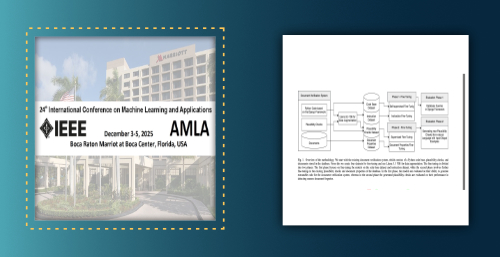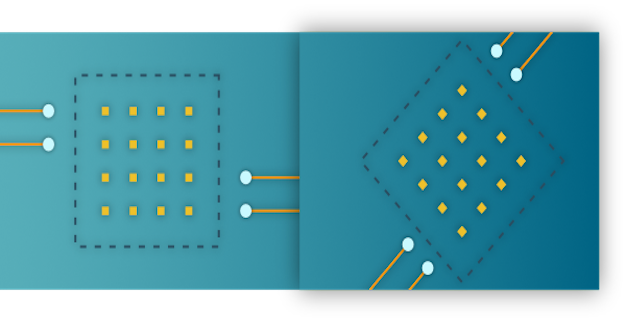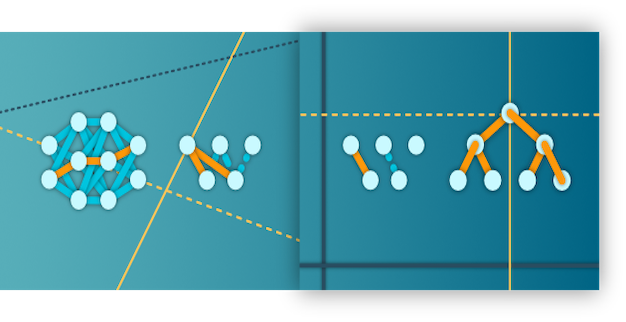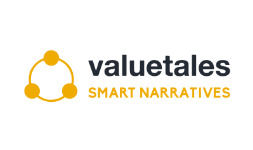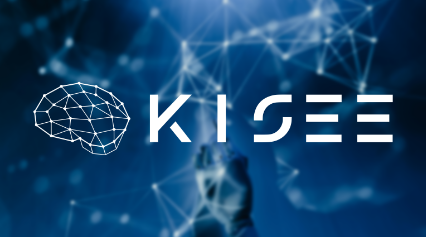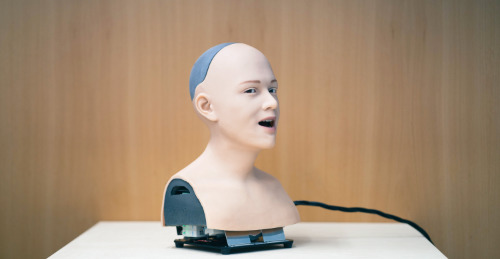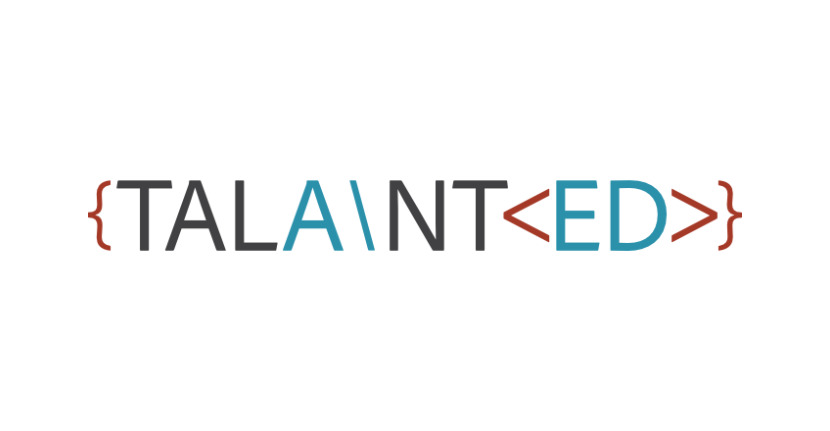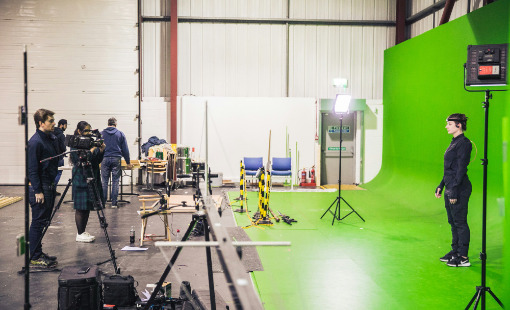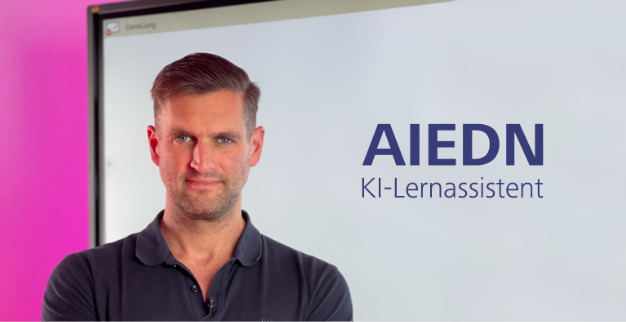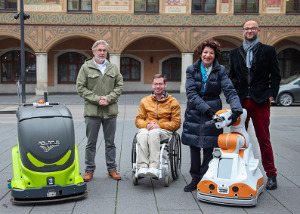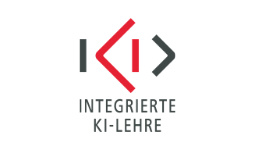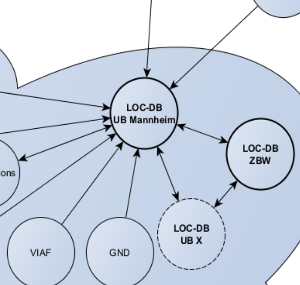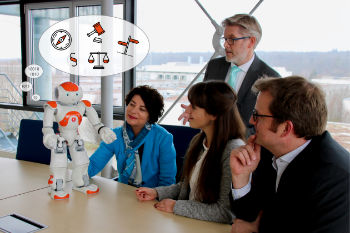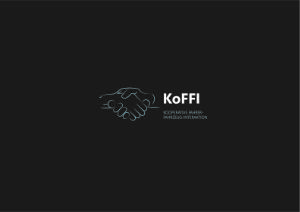Wei Zhou,
Mohsen Mesgar,
Heike Adel and
Annemarie Friedrich:
Texts or images? A fine-grained analysis on the effectiveness of input representations and models for table question answering,
in Findings of the association for computational linguistics: ACL 2025,
Association for Computational Linguistics, Vienna, Austria 2025 (paper-conference)
LINK
Mingyang Wang,
Heike Adel,
Lukas Lange,
Yihong Liu,
Ercong Nie,
Jannik Strötgen and
Hinrich Schuetze:
Lost in multilinguality: Dissecting cross-lingual factual inconsistency in transformer language models,
in Proceedings of the 63rd annual meeting of the association for computational linguistics (volume 1: Long papers),
Association for Computational Linguistics, Vienna, Austria 2025 (paper-conference)
LINK
Mingyang Wang,
Alisa Stoll,
Lukas Lange,
Heike Adel,
Hinrich Schuetze and
Jannik Strötgen:
Bring your own knowledge: A survey of methods for LLM knowledge expansion,
in Proceedings of the first workshop on large language model memorization (L2M2),
Association for Computational Linguistics, Vienna, Austria 2025 (paper-conference)
LINK
Wei Zhou,
Mohsen Mesgar,
Annemarie Friedrich and
Heike Adel:
Efficient multi-agent collaboration with tool use for online planning in complex table question answering,
in Findings of the association for computational linguistics: NAACL 2025,
Association for Computational Linguistics, Albuquerque, New Mexico 2025 (paper-conference)
DOI
LINK
Philipp Moeßner and
Heike Adel:
Human vs. AI: A novel benchmark and a comparative study on the detection of generated images and the impact of prompts,
in Proceedings of the 1stWorkshop on GenAI content detection (GenAIDetect),
International Conference on Computational Linguistics, Abu Dhabi, UAE 2025 (paper-conference)
LINK
Wei Zhou,
Mohsen Mesgar,
Heike Adel and
Annemarie Friedrich:
RITT: A retrieval-assisted framework with image and text table representations for table question answering,
in Proceedings of the 4th table representation learning workshop,
Association for Computational Linguistics, Vienna, Austria 2025 (paper-conference)
LINK
Johanna Magdalena Kuch,
Marcel Heisler,
Stina Klein,
Silvan Mertes,
Lennart Eing,
Elisabeth André and
Christian Becker-Asano:
Your Robot, My Voice: Enhancing Android Robot Likability through Personalization by Cloning the User’s Voice,
in 2025 34th IEEE international conference on robot and human interactive communication (RO-MAN),
IEEE, Eindhoven, Netherlands 2025 (paper-conference)
DOI
LINK
Kilian Kunkel, Lukas Baur, Alexander Sauer and
Christian Becker-Asano:
Predictability of Electrical Loads in Various Domains: An empirical AI-benchmarking approach,
in Proceedings of the 2025 ACM/IEEE international conference on power engineering and electrical technology,
IEEE Press, 2025 (paper-conference)
Jan Doria:
Kann KI Krankenhaus? Ein Lehrexperiment zum Einsatz von Rollenspielen zur Förderung multiperspektivischer ethischer Reflexionskompetenz,
in Ethik der Digitalisierung in Gesundheitswesen und Pflege Analysen und ein Tool zur integrierten Forschung,
Franz Steiner Verlag, Stuttgart 2025 (chapter)
DOI
LINK
Jan Doria and
Oliver Zöllner:
Ethik der Künstlichen Intelligenz in der Alltagswelt,
in Handbuch Soziale Praktiken und Digitale Alltagswelten,
Springer Fachmedien Wiesbaden, Wiesbaden 2025 (chapter)
DOI
LINK
Manuel Eberhardinger, Patrick Takenaka, Daniel Grießhaber and
Johannes Maucher:
Anonymization of documents for law enforcement with machine learning,
in 2025 IEEE symposium on CI in security, defence and biometrics (IEEE CISDB),
, 2025 (paper-conference)
Manuel Eberhardinger, James Goodman, Alexander Dockhorn, Diego Perez-Liebana, Raluca D Gaina, Duygu Çakmak, Setareh Maghsudi and
Simon Lucas:
From code to play: Benchmarking program search for games using large language models,
in IEEE Transactions on Games,
IEEE, 2025 (article-journal)
Manuel Eberhardinger:
From explainability to interpretability: A case study on game AI using program synthesis,
in Proceedings of the AAAI Conference on Artificial Intelligence and Interactive Digital Entertainment,
, 2025 (article-journal)
DOI
LINK
Jona Eisele,
André Gerlach,
Yannik Manz,
Marcus Maeder and
Steffen Marburg:
Object classification in automotive ultrasonic surround sensing using a compact 2 × 2 sensor array and a convolutional neural network,
in The Journal of the Acoustical Society of America,
, 2025 (article-journal)
DOI
LINK
Tim Bader, Leon Eisemann, Adrian Pogorzelski, Namrata Jangid and
Attila-Balazs Kis:
Introducing a Class-Aware Metric for Monocular Depth Estimation: An Automotive Perspective,
in Computer Vision – ECCV 2024 Workshops,
Springer Nature Switzerland, Cham 2025 (paper-conference)
Leon Eisemann, Kushal Narasimha and
Johannes Maucher:
TrackLidFormer: A Transformer-Based Approach for Occluded Object Tracking,
in Computer Vision – ECCV 2024 Workshops,
Springer Nature Switzerland, Cham 2025 (paper-conference)
Rana Khonsari, Leon Eisemann, Igor Vozniak, Christian Müller and
Johannes Maucher:
MonoSORT3D: A Monocular Approach for Online Auxiliary-free Multi-Object Tracking,
in 2025 IEEE intelligent vehicles symposium (IV),
, 2025 (paper-conference)
Daniel Griebetahaber,
Maximilian Kimmich,
Johannes Maucher and
Thang Vu:
A toolbox for improving evolutionary prompt search,
in Proceedings of the 2nd LUHME workshop,
UP - Universidade do Porto (https://doi.org/10.21747/978-989-9193-73-4/lan2), LIACC - Laboratório de Inteligência Artificial e Ciência de Computadores da Universidade do Porto, CLUP - Centro de Linguística da Universidade do Porto, UEF - The University of Eastern Finland; UAH - Universidad de Alcalá., Bologna, Italy 2025 (paper-conference)
LINK
Petra Grimm:
Ethik der Interdisziplinarität in der KI- und MTI-Forschung: Eine Frage der Haltung?,
in Ethik der Digitalisierung in Gesundheitswesen und Pflege,
Franz Steiner Verlag, Stuttgart 2025 (chapter)
Petra Grimm:
Künstliche Intelligenz: Prometheus oder Büchse der Pandora? Herausforderungen für eine narrative Ethik der KI,
in Ethische Fragen im Digitalzeitalter,
Aisthesis, Bielefeld 2025 (chapter)
Petra Grimm and
Oliver Zöllner:
Ethik der Digitalisierung in Gesundheitswesen und Pflege: Analysen und ein Tool zur integrierten Forschung,
in Schriftenreihe Medienethik | Digitale Ethik,
Franz Steiner Verlag, Stuttgart 2025 (book)
DOI
Marcel Heisler and
Christian Becker-Asano:
An iPhone pro is all you need: Mimicking facial expressions on an android robot head,
in Proceedings of the 2025 ACM/IEEE international conference on human-robot interaction,
IEEE Press, Melbourne, Australia 2025 (paper-conference)
Marcel Heisler and
Christian Becker-Asano:
Conversations with Andrea: Visitors’ Opinions on Android Robots in a Museum,
in 2025 34th IEEE international conference on robot and human interactive communication (RO-MAN),
IEEE, Eindhoven, Netherlands 2025 (paper-conference)
DOI
LINK
Malte Grosse,
Cornelius Specht and
Peter Thies:
A Deep Dive into the Architecture and Implementation of a Platform for Multi-dimensional AI Education Whitepaper-Serie #4: Building the IKID Sandbox,
in Whitepaper-Serie zum Forschungsprojekt IKID: Interdisziplinäres KI-Exploratorium,
Digipolis Verlag, Kappel-Grafenhausen 2025 (report)
DOI
LINK
Max Böttinger and
David Klotz:
Demonstratoren für die interdisziplinäre KI-Lehre: Praxisnahe Vermittlung von KI-Kompetenz im Projekt IKID,
in Whitepaper-Serie zum Forschungsprojekt IKID: Interdisziplinäres KI-Exploratorium,
Digipolis Verlag, Kappel-Grafenhausen 2025 (report)
DOI
LINK
Sebastian Maisel,
Samuel Wunderlich,
Anna Kleinhans and
Andreas Koch:
Shot scale beyond boundaries: A regression-based approach,
The 11th World Congress on Electrical Engineering; Computer Systems; Science, 2025 (paper-conference)
DOI
Florian Rupp and
Kai Eckert:
Level the level: Balancing game levels for asymmetric player archetypes with reinforcement learning,
in Proceedings of the 20th international conference on the foundations of digital games,
Association for Computing Machinery, New York, NY, USA 2025 (paper-conference)
DOI
LINK
Patrick Takenaka,
Johannes Maucher and
Marco F. Huber:
ViPro-2: Unsupervised state estimation via integrated dynamics for guiding video prediction,
in 2025 international joint conference on neural networks (IJCNN),
, 2025 (paper-conference)
DOI
LINK
Mingyang Wang,
Heike Adel,
Lukas Lange,
Jannik Strötgen and
Hinrich Schuetze:
Learn it or leave it: Module composition and pruning for continual learning,
in Proceedings of the 9th workshop on representation learning for NLP (RepL4NLP-2024),
Association for Computational Linguistics, Bangkok, Thailand 2024 (paper-conference)
LINK
Mingyang Wang,
Lukas Lange,
Heike Adel,
Jannik Strötgen and
Hinrich Schuetze:
Better call SAUL: Fluent and consistent language model editing with generation regularization,
in Findings of the association for computational linguistics: EMNLP 2024,
Association for Computational Linguistics, Miami, Florida, USA 2024 (paper-conference)
DOI
LINK
Hendrik Schuff,
Heike Adel and
Ngoc Thang Vu:
Thought flow nets: From single predictions to trains of model thought,
in Natural Language Processing,
, 2024 (article-journal)
DOI
Wei Zhou,
Mohsen Mesgar,
Heike Adel and
Annemarie Friedrich:
FREB-TQA: A fine-grained robustness evaluation benchmark for table question answering,
in Proceedings of the 2024 conference of the north american chapter of the association for computational linguistics: Human language technologies (volume 1: Long papers),
Association for Computational Linguistics, Mexico City, Mexico 2024 (paper-conference)
LINK
Mingyang Wang,
Heike Adel,
Lukas Lange,
Jannik Strötgen and
Hinrich Schuetze:
Rehearsal-free modular and compositional continual learning for language models,
in Proceedings of the 2024 conference of the north american chapter of the association for computational linguistics: Human language technologies (volume 2: Short papers),
Association for Computational Linguistics, Mexico City, Mexico 2024 (paper-conference)
LINK
Wei Zhou,
Heike Adel,
Hendrik Schuff and
Ngoc Thang Vu:
Explaining pre-trained language models with attribution scores: An analysis in low-resource settings,
in Proceedings of the 2024 joint international conference on computational linguistics, language resources and evaluation (LREC-COLING 2024),
ELRA; ICCL, Torino, Italia 2024 (paper-conference)
LINK
Tim Tarsi, Heike Adel, Jan Hendrik Metzen, Dan Zhang, Matteo Finco and
Annemarie Friedrich:
SciOL and MuLMS-img: Introducing a large-scale multimodal scientific dataset and models for image-text tasks in the scientific domain,
in Proceedings of the IEEE/CVF winter conference on applications of computer vision,
, 2024 (paper-conference)
Marcel Heisler and
Christian Becker-Asano:
Learning to control an android robot head for facial animation,
in Companion of the 2024 ACM/IEEE international conference on human-robot interaction,
Association for Computing Machinery, New York, NY, USA 2024 (paper-conference)
DOI
LINK
Jichen Zhu, Maren Awiszus, Michael Cook, Alexander Dockhorn, Manuel Eberhardinger, Daniele Loiacono, Simon M Lucas, Ana Matran-Fernandez, Diego Perez Liebana, Tommy Thompson and
:
3.13 explainable AI for games,
in Human-Game AI Interaction,
, 2024 (article-journal)
Florian Rupp, Manuel Eberhardinger and
Kai Eckert:
Simulation-driven balancing of competitive game levels with reinforcement learning,
in IEEE Transactions on Games,
IEEE, 2024 (article-journal)
Manuel Eberhardinger, Florian Rupp, Johannes Maucher and
Setareh Maghsudi:
Unveiling the decision-making process in reinforcement learning with genetic programming,
in International conference on swarm intelligence,
Springer Nature Singapore Singapore, 2024 (paper-conference)
Manuel Eberhardinger, Duygu Cakmak, Alexander Dockhorn, Raluca D Gaina, James Goodman, Amy K Hoover, Simon M Lucas, Setareh Maghsudi and
Diego Perez Liebana:
3.8 LLM-based program search for games,
in Computational Creativity for Game Development,
, 2024 (article-journal)
Jona Eisele, André Gerlach, Marcus Maeder, Andreas Koch and
Steffen Marburg:
Object classification in automotive ultrasonic sensing using a convolutional neural network,
in Proceedings of the 10th convention of the european acoustics association, forum acusticum 2023,
European Acoustics Association (EAA), Torino 2024 (paper-conference)
Jona Eisele,
André Gerlach,
Marcus Maeder and
Steffen Marburg:
Relevance of phase information for object classification in automotive ultrasonic sensing using convolutional neural networks,
in The Journal of the Acoustical Society of America,
, 2024 (article-journal)
DOI
LINK
Jona Eisele, André Gerlach, Marcus Maeder, Andreas Koch and
Steffen Marburg:
Einfluss der amplitude und phase von ultraschallrückstreuungen auf die klassifizierbarkeit von objekten in der fahrzeugumfeldsensierung,
in Fortschritte der akustik - DAGA 2024, 50. Jahrestagung für akustik, 18.-21. März 2024, hannover,
Deutsche Gesellschaft für Akustik e.V. (DEGA), Berlin 2024 (paper-conference)
Leon Eisemann and
Nicole Neis:
Repetition, Replay, Replica - A Survey on the Understanding of Resimulation in the Context of Automated Driving,
in 2024 IEEE 27th international conference on intelligent transportation systems (ITSC),
, 2024 (paper-conference)
Leon Eisemann and
Johannes Maucher:
Divide and Conquer: A Systematic Approach for Industrial Scale High-Definition OpenDRIVE Generation from Sparse Point Clouds,
in 2024 IEEE intelligent vehicles symposium (IV),
, 2024 (paper-conference)
DOI
Leon Eisemann and
Johannes Maucher:
A NeRF Based Approach For Monocular Traffic Sign Reconstruction And Localization,
in 2024 IEEE 27th international conference on intelligent transportation systems (ITSC),
, 2024 (paper-conference)
N. Neis,
L. Eisemann,
D. Hermann,
J. Zhou and
L. Toettel:
From Reality to Simulation: Automatized Transfer and Simulation of Critical Driving Scenarios with Digital Twins,
in ELIV 2024,
VDI Verlag, 2024 (chapter)
DOI
LINK
L. Eisemann,
L. Toettel,
T. Watzl,
T. K. Rupp and
J. Schaper:
Using Large Language Models to generate critical driving situations for virtual and hybrid ADAS/AD testing,
in ELIV 2024,
VDI Verlag, 2024 (chapter)
DOI
LINK
Petra Grimm and
Susanne Kuhnert:
KI und Ethik,
in KI in der Unternehmenspraxis,
Schäfer-Poeschel, Stuttgart 2024 (chapter)
Petra Grimm and
Kai-Erik Trost:
Narrative der Mensch-Roboter-Beziehung und ihre Bedeutung,
, Stuttgart 2024 (report)
LINK
Marcel Schlegel,
Marah Blaurock,
Janina Gabrian and
Jürgen Seitz:
Einführung in das interdisziplinäre Lehrkonzept von IKID: Ziele und Programmatik einer integrierten KI-Lehre,
in Whitepaper-Serie zum Forschungsprojekt IKID: Interdisziplinäres KI-Exploratorium,
Digipolis Verlag, Kappel-Grafenhausen 2024 (report)
DOI
LINK
Florian Rupp,
Benjamin Schnabel and
Kai Eckert:
Implementing Data Workflows and Data Model Extensions with RDF-star,
in The Electronic Library,
, 2024 (article-journal)
DOI
LINK
Florian Rupp,
Manuel Eberhardinger and
Kai Eckert:
Simulation-driven balancing of competitive game levels with reinforcement learning,
in IEEE Transactions on Games,
, 2024 (article-journal)
DOI
Florian Rupp and
Kai Eckert:
GEEvo: Game Economy Generation and Balancing with Evolutionary Algorithms,
in 2024 IEEE Congress on Evolutionary Computation (CEC),
, 2024 (paper-conference)
DOI
LINK
Florian Rupp and
Kai Eckert:
G-PCGRL: Procedural Graph Data Generation via Reinforcement Learning,
in 2024 IEEE conference on games (CoG),
, 2024 (paper-conference)
DOI
Florian Rupp,
Alessandro Puddu,
Christian Becker-Asano and
Kai Eckert:
It might be balanced, but is it actually good? An empirical evaluation of game level balancing,
in 2024 IEEE conference on games (CoG),
, 2024 (paper-conference)
DOI
Patrick Takenaka,
Manuel Eberhardinger,
Daniel Grießhaber and
Johannes Maucher:
Classification of inkjet printers based on droplet statistics,
in 2024 international joint conference on neural networks (IJCNN),
, 2024 (paper-conference)
DOI
Patrick Takenaka, Johannes Maucher and
Marco F. Huber:
ViPro: Enabling and controlling video prediction for complex dynamical scenarios using procedural knowledge,
in Neural-symbolic learning and reasoning,
Springer Nature Switzerland, Cham 2024 (paper-conference)
Mingyang Wang,
Heike Adel,
Lukas Lange,
Jannik Strötgen and
Hinrich Schuetze:
GradSim: Gradient-based language grouping for effective multilingual training,
in Proceedings of the 2023 conference on empirical methods in natural language processing,
Association for Computational Linguistics, Singapore 2023 (paper-conference)
DOI
LINK
Sophie Henning,
Talita Anthonio,
Wei Zhou,
Heike Adel,
Mohsen Mesgar and
Annemarie Friedrich:
Is the answer in the text? Challenging ChatGPT with evidence retrieval from instructive text,
in Findings of the association for computational linguistics: EMNLP 2023,
Association for Computational Linguistics, Singapore 2023 (paper-conference)
LINK
Martina Köhler,
Elisa Zeller,
Christian Werner Becker-Asano and
Christian Jauch:
Effect of sensor-based assistance systems on users in manual assembly tasks,
in Proceedings of the 13th conference on learning factories (CLF 2023),
, 2023 (paper-conference)
DOI
Amelie Kassner and
Christian Becker-Asano:
Comparing an android head with its digital twin regarding the dynamic expression of emotions,
in 2023 11th international conference on affective computing and intelligent interaction workshops and demos (ACIIW),
, 2023 (paper-conference)
Marcel Heisler and
Christian Becker-Asano:
An android robot head as embodied conversational agent,
in Proc. Intl. Symposium on robotics (ISR europe),
, 2023 (paper-conference)
Marcel Heisler, Stefan Kopp and
Christian Becker-Asano:
Making an android robot head talk,
in Proc. Of 32nd IEEE int. Conf. On robot and human interactive communication (RO-MAN),
, 2023 (paper-conference)
Johanna Kuch, Frank Melchior and
Christian Becker-Asano:
Effects of gender neutralization on the anthropomorphism of voices,
in Proc. Of 32nd IEEE int. Conf. On robot and human interactive communication (RO-MAN),
, 2023 (paper-conference)
Manuel Eberhardinger, Johannes Maucher and
Setareh Maghsudi:
Towards explainable decision making with neural program synthesis and library learning,
in 17th international workshop on neural-symbolic learning and reasoning,
, 2023 (paper-conference)
Manuel Eberhardinger, Johannes Maucher and
Setareh Maghsudi:
Learning of generalizable and interpretable knowledge in grid-based reinforcement learning environments,
in Proceedings of the AAAI conference on artificial intelligence and interactive digital entertainment,
, 2023 (paper-conference)
Dan Ashlock, Setareh Maghsudi, Diego Perez Liebana, Pieter Spronck and
Manuel Eberhardinger:
Human-game AI interaction (dagstuhl seminar 22251),
in Dagstuhl Reports,
Schloss Dagstuhl–Leibniz-Zentrum für Informatik, 2023 (article-journal)
Jona Eisele, André Gerlach, Marcus Maeder, Andreas Koch and
Steffen Marburg:
Objektklassifikation auf basis von luftultraschall für aufgaben der umfeldsensierung mittels convolutional neural network,
in Fortschritte der akustik - DAGA 2023, 49. Jahrestagung für akustik, 06.-09. März 2023, hamburg,
Deutsche Gesellschaft für Akustik e.V. (DEGA), Berlin 2023 (paper-conference)
Jona Eisele,
André Gerlach,
Marcus Maeder and
Steffen Marburg:
Convolutional neural network with data augmentation for object classification in automotive ultrasonic sensing,
in The Journal of the Acoustical Society of America,
, 2023 (article-journal)
DOI
LINK
Leon Eisemann and
Johannes Maucher:
Automatic Odometry-Less OpenDRIVE Generation From Sparse Point Clouds,
in 2023 IEEE 26th international conference on intelligent transportation systems (ITSC),
, 2023 (paper-conference)
DOI
Leon Eisemann, Mirjam Fehling-Kaschek, Silke Forkert, Andreas Forster, Henrik Gommel, Susanne Günther, Stephan Hammer, David Hermann, Marvin Klemp, Benjamin Lickert1, Florian Lüttner, Robin Moss, Nicole Neis, Maria Pohle, Dominik Schreiber, Cathrina Sowa, Daniel Stadler, Janina Stompe, Michael Strobelt, David Unger and
Jens Ziehn:
A joint approach towards data-driven virtual testing for automated driving: The AVEAS project,
in 7th international symposium on future active safety technology toward zero traffic accidents (JSAE FAST-zero ’23), 2023,
JSAE, 2023 (paper-conference)
L. Eisemann, M Fehling-Kaschek, H. Gommel, D. Hermann, M. Klemp, M. Lauer, B. Lickert, F. Luettner, R. Moss, N. Neis, M. Pohle, S. Romanski, D. Stadler, A. Stolz, J. Ziehn and
J. Zhou:
An Approach to Systematic Data Acquisition and Data-Driven Simulation for the Safety Testing of Automated Driving Functions,
in 26th IEEE international conference on intelligent transportation systems (ITSC) 2023,
, 2023 (paper-conference)
Daniel Grießhaber,
Johannes Maucher and
Ngoc Thang Vu:
Regularisation for efficient softmax parameter generation in low-resource text classifiers,
in Proceedings of the 32nd international joint conference on artificial intelligence (IJCAI),
, Macao, P.R. China 2023 (paper-conference)
DOI
LINK
Florian Rupp,
Manuel Eberhardinger and
Kai Eckert:
Balancing of competitive two-player Game Levels with Reinforcement Learning,
in 2023 IEEE Conference on Games (CoG),
, 2023 (paper-conference)
DOI
LINK
Patrick Takenaka, Johannes Maucher and
Marco F. Huber:
Guiding video prediction with explicit procedural knowledge,
in Proceedings of the IEEE/CVF international conference on computer vision (ICCV) workshops,
, 2023 (paper-conference)
Sarah Kleine-Wechelmann, Kim Bastiaanse, Matthias Freundel and
Christian Becker-Asano:
Designing the mobile robot kevin for a life science laboratory,
in 2022 31st IEEE international conference on robot and human interactive communication (RO-MAN),
IEEE, 2022 (paper-conference)
Manuel Eberhardinger, Johannes Maucher and
Setareh Maghsudi:
Imitation learning of logical program policies for multi-agent reinforcement learning,
in 2nd international workshop on explainable and interpretable machine learning (XI-ML),
, 2022 (paper-conference)
Jona Eisele and
André Gerlach:
Künstliche intelligenz für akustische sensorsysteme,
in Fortschritte der akustik - DAGA 2022, 48. Jahrestagung für akustik, 21.-24. März 2022, stuttgart,
Deutsche Gesellschaft für Akustik e.V. (DEGA), Berlin 2022 (paper-conference)
Johannes Theodoridis,
Jessica Hofmann,
Johannes Maucher and
Andreas Schilling:
Trapped in texture bias? A large scale comparison of deep instance segmentation,
in Computer vision - ECCV 2022 - 17th european conference, tel aviv, israel, october 23-27, 2022, proceedings, part VIII,
Springer, 2022 (paper-conference)
DOI
LINK
Florian Rupp, Benjamin Schnabel and
Kai Eckert:
Easy and complex: New perspectives for metadata modeling using RDF-star and named graphs,
in Knowledge graphs and semantic web,
Springer International Publishing, Cham 2022 (paper-conference)
Celso Melo,
Dean Petters,
Joel Parthemore,
David Moffatt and
Christian Becker-Asano:
Introduction to the special issue on computational modelling of emotion,
in IEEE Transactions on Affective Computing,
, 2021 (article-journal)
DOI
Daniel Grießhaber,
Uwe Laufs,
Johannes Maucher,
Nadine Miedzianowski,
Zofia Saternus and
Katharina Staab:
Erreichbarkeitsmanagement im unternehmen: Schaffung unterbrechungsfreier regenerationsphasen durch organisatorische und technische maßnahmen zur einschränkung ständiger erreichbarkeit,
in Arbeit in der digitalisierten Welt: Praxisbeispiele und Gestaltungslösungen aus dem BMBF-Förderschwerpunkt,
Springer Berlin Heidelberg, 2021 (article-journal)
DOI
LINK
Leon Eisemann,
Jan Froehlich,
Axel Hartz and
Johannes Maucher:
Expanding dynamic range in a single-shot image through a sparse grid of low exposure pixels,
in Electronic Imaging,
, 2020 (article-journal)
DOI
LINK
Daniel Grießhaber,
Johannes Maucher,
Uwe Laufs,
Katharina Staab,
Zofia Saternus and
Stephanie Weinhardt:
Erreichbarkeitsmanagement in der betrieblichen praxis,
in Gestaltung vernetzt-flexibler Arbeit: Beiträge aus Theorie und Praxis für die digitale Arbeitswelt,
Springer Berlin Heidelberg, 2020 (book)
DOI
LINK
Miklós Sebők and
Zoltán Kacsuk:
The Multiclass Classification of Newspaper Articles with Machine Learning: The Hybrid Binary Snowball Approach,
in Political Analysis,
Cambridge University Press, 2020 (article-journal)
DOI
Lea Baumgärtner,
Stephanie Jauss,
Johannes Maucher and
Gottfried Zimmermann:
Automated sign language translation: The role of artificial intelligence now and in the future,
in Proceedings of the 4th international conference on computer-human interaction research and applications, CHIRA 2020, budapest, hungary, november 5-6, 2020,
SCITEPRESS, 2020 (paper-conference)
DOI
LINK
Daniel Grießhaber,
Johannes Maucher and
Ngoc Thang Vu:
Fine-tuning BERT for low-resource natural language understanding via active learning,
in Proceedings of the 28th international conference on computational linguistics, COLING 2020, barcelona, spain (online), december 8-13, 2020,
International Committee on Computational Linguistics, 2020 (paper-conference)
DOI
LINK
Daniel Dreher,
Marius Schmidt,
Cooper Welch,
Sara Ourza,
Samuel Zündorf,
Johannes Maucher,
Steven Peters,
Andreas Dreizler,
Benjamin Böhm and
Alexander Hanuschkin:
Deep feature learning of in-cylinder flow fields to analyze cycle-to-cycle variations in an SI engine,
in International Journal of Engine Research,
, 2020 (article-journal)
DOI
LINK
Leon Eisemann,
Jan Froehlich,
Axel Hartz and
Johannes Maucher:
Expanding dynamic range in a single-shot image through a sparse grid of low exposure pixels,
in Electronic Imaging,
, 2020 (article-journal)
DOI
Magnus Pfeffer,
Heidrun Wiesenmüller and
Cornelia Vonhof:
Sie haben doch jetzt länger Ferien, oder? - Studiengang Informationswissenschaften an der HdM Stuttgart und die Lehre in Zeiten von COVID-19,
in b.i.t.online,
, 2020 (article-journal)
LINK
Magnus Pfeffer and
Martin Roth:
Japanese Visual Media Graph: Providing researchers with data from enthusiast communities,
in 2019 proceedings of the international conference on dublin core and metadata applications,
Dublin Core Metadata Initiative (DCMI), Seoul, Korea 2020 (paper-conference)
LINK
Magnus Pfeffer:
Zukünftige Herausforderungen im Blick - Das neue Studienprogramm »Informationswissenschaften« an der Hochschule der Medien Stuttgart,
in BuB - Forum Bibliothek und Information,
, 2020 (article-journal)
LINK
Martin Picard and
Martin Roth:
Gamifi<i>nation</i>: Historical Characters in the Japanese Musō Game Sengoku BASARA,
in Spielzeichen III,
Verlag Werner Hülsbusch, Glückstadt 2020 (chapter)
Akito [明人] Inoue [井上] and
Martin [マーティン] Roth [ロート]:
Gamification,
in Japanese media and popular culture,
, 2020 (chapter)
LINK
Tracy Arndt,
Konstantin Freybe,
André Lahmann and
Martin Roth:
Reference Evil – Bibliografische Herausforderungen bei Videospielen,
in Bibliotheksdienst,
De Gruyter Saur, Berlin, Boston 2020 (article-journal)
DOI
LINK
Peter Mühleder,
Martin Roth,
Tracy Arndt and
Florian Rämisch:
Duct-Taping Databases, or How to Use Fragmentary Online Data for Researching “Japanese” Videogames,
in Journal of the Japanese Association for Digital Humanities,
, 2020 (article-journal)
DOI
Ito Kyohei,
Yasuo Kawasaki,
Luca Bruno and
Martin Roth:
Japan’s Videogames and Digital Cultures : Local and Global. A Report about the 6th PaJaKo Workshop between Ritsumeikan and Leipzig University,
in REPLAYING JAPAN,
, 2020 (article-journal)
DOI
Martin Roth:
多様なデータソースの研究利活用 - データに基づくゲーム文化研究のニーズと実践 [Using heterogeneous data sources for research - Requirements and practices in data-based game culture research],
in DIGRA japan proceedings of 10th annual conference,
Digital Games Research Association JAPAN, 2020 (paper-conference)
LINK
Schweizer T.,
Renner F.,
Sun D.,
Becker-Asano C. and
Tuschen-Caffier B.:
Cognitive processing and regulation modulates analogue trauma symptoms in a virtual reality paradigm,
in Cognitive Therapy and Research,
, 2019 (article-journal)
DOI
Nina Schaaf,
Marco F. Huber and
Johannes Maucher:
Enhancing decision tree based interpretation of deep neural networks through L1-orthogonal regularization,
in 18th IEEE international conference on machine learning and applications, ICMLA 2019, boca raton, FL, USA, december 16-19, 2019,
IEEE, 2019 (paper-conference)
DOI
LINK
Magnus Pfeffer:
IT-Kernkompetenzen im Bachelorstudiengang „Informationswissenschaften“ an der Hochschule der Medien Stuttgart,
in BIBLIOTHEK – Forschung und Praxis,
, 2019 (article-journal)
DOI
LINK
Martin Roth:
コラム:ドイツの大学におけるゲーム授業の変容と現状 [Column: Teaching Videogames at Universities in Germany – a short overview],
in 多元化するゲーム文化と社会[Diversifying game culture and society],
ニューゲームズオーダー[New Games Order], Tachikawa 2019 (chapter)
マーティン[Martin] ロート[Roth]:
交換様式からみたデジタル空間の支配構造[The structure of control in digital space from the perspective of modes of exchange],
in 世界のなかの〈ポスト3・11〉:ヨーロッパと日本の対話 [’Post 3.11’ in a global context: A dialogue between Japan and Europe],
Shinyōsha [新曜社], Tokyo 2019 (chapter)
Martin Roth:
Digital Modes of Exchange: Structural Relations of Commodity, Control, and Community,
in Asiascape: Digital Asia,
, 2019 (article-journal)
Martin Roth:
Was Daten uns nicht sagen können,
in Diskurs der Daten, Qualitative Zugänge zu einem quantitativen Phänomen,
De Gruyter, Berlin, Boston 2019 (chapter)
世界のなかの〈ポスト3・11〉:ヨーロッパと日本の対話 [’Post 3.11’ in a global context: A dialogue between Japan and Europe],
Shinyōsha [新曜社], Tokyo 2019 (book)
Special Issue: Digital Spatiality,
in Asiascape: Digital Asia,
, 2019 (article-journal)
Rahul Krishna Gairola and
Martin Roth:
Cyber Zones: Digital Spatialities and Material Realities across Asia,
in Asiascape: Digital Asia,
, 2019 (article-journal)
Astrid M. Pütten,
Nicole C. Krämer,
Christian Becker-Asano,
Kohei Ogawa,
Shuichi Nishio and
Hiroshi Ishiguro:
At the café—exploration and analysis of people’s nonverbal behavior toward an android,
in Geminoid Studies: Science and Technologies for Humanlike Teleoperated Androids,
Springer Singapore, Singapore 2018 (article-journal)
DOI
LINK
Zoltan Kacsuk:
Re-examining the “what is manga” problematic: The tension and interrelationship between the “style” versus “made in japan” positions,
in Arts,
, 2018 (article-journal)
LINK
Andreas Stiegler,
Keshav P. Dahal,
Johannes Maucher and
Daniel Jack Livingstone:
Symbolic reasoning for hearthstone,
in IEEE Trans. Games,
, 2018 (article-journal)
DOI
LINK
Daniel Grießhaber,
Ngoc Thang Vu and
Johannes Maucher:
Low-resource text classification using domain-adversarial learning,
in Statistical language and speech processing - 6th international conference, SLSP 2018, mons, belgium, october 15-16, 2018, proceedings,
Springer, 2018 (paper-conference)
DOI
LINK
Heidi Weberruss,
Johannes Maucher,
Renate Oberhoffer and
Jan Müller:
Recovery of the cardiac autonomic nervous and vascular system after maximal cardiopulmonary exercise testing in recreational athletes.,
in European journal of applied physiology,
, 2018 (article-journal)
DOI
Magnus Pfeffer:
The times they are a changin ’ - implementing a modern library and information science curriculum Special session,
in 2018 proceedings of the international conference on dublin core and metadata applications,
Dublin Core Metadata Initiative (DCMI), 2018 (paper-conference)
LINK
Magnus Pfeffer and
Katharina Schöllhorn:
Praktische Nutzung von Klassifikationssystemen,
in Klassifikationen in bibliotheken: Theorie – anwendung – nutzen,
De Gruyter Saur, Boston 2018 (chapter)
DOI
Martin Roth:
Videospiele als politisches Medium,
in Digitale Spiele: Interdisziplinäre Perspektiven zu Diskursfeldern, Inszenierung und Musik,
transcript, Bielefeld 2018 (chapter)
LINK
Martin Roth:
The Suspension of Media Literacy,
in 5 Designing Media Ecology,
, 2018 (article-journal)
LINK
Martin Roth:
Rezension von Prieler, Michael und Florian Kohlbacher (2016): Advertising in the aging society: Understanding representations, practitioners, and consumers in Japan.,
in Medien und Altern,
, 2018 (article-journal)
T. X. N. Pham,
Kotaro Hayashi,
Christian Becker-Asano,
S. Lacher and
Ikuo Mizuuchi:
Evaluating the usability and users’ acceptance of a kitchen assistant robot in household environment,
in 26th IEEE international symposium on robot and human interactive communication, RO-MAN 2017, lisbon, portugal, august 28 - sept. 1, 2017,
IEEE, 2017 (paper-conference)
DOI
Zoltan Kacsuk:
Review of: Casey brienza: Global manga. ’Japanese’ comics without japan?,
in sehepunkte,
, 2017 (article-journal)
LINK
Martin Roth:
Thought-Provoking Play: Political Philosophies in Science Fictional Videogame Spaces from Japan,
ETC Press, Pittsburgh 2017 (book)
LINK
マーティン [Martin] [Roth]:
ドイツのゲーム研究事情 [Observations on Videogame Research in Germany],
in ゲーム研究の手引き [A Brief Guide To Game Studies],
文化庁 [Agency for Cultural Affairs, Japan], 2017 (chapter)
Andreas Stiegler,
Claudius Messerschmidt,
Johannes Maucher and
Keshav P. Dahal:
Hearthstone deck-construction with a utility system,
in 10th international conference on software, knowledge, information management & applications, SKIMA 2016, chengdu, china, december 15-17, 2016,
IEEE, 2016 (paper-conference)
DOI
LINK
Magnus Pfeffer:
Automatic Creation of Mappings between Classification Systems for Bibliographic Data,
in 2016 proceedings of the international conference on dublin core and metadata applications,
Dublin Core Metadata Initiative (DCMI), 2016 (paper-conference)
LINK
Magnus Pfeffer and
Heidrun Wiesenmüller:
Resource Discovery Systeme,
in Handbuch informationskompetenz,
De Gruyter Saur, Berlin 2016 (chapter)
LINK
Martin E. Roth:
Review of Alexander R. Galloway, Eugene Thacker, and McKenzie Wark, <i>excommunication</i>.,
in Asiascape: Digital Asia,
, 2016 (article-journal)
Martin Roth:
Herausforderungen für die Japanforschung im Zeitalter der digitalen Medien,
in 100 Jahre Ostasiatisches Institut an der Universität Leipzig, 1914-2014,
Leipziger Universitätsverlag, Leipzig 2016 (chapter)
Julia Glöckl,
Martin Roth,
Fabian Schäfer,
Cleo Pelte and
Alexander Zahlten:
What is Re: Visions?,
in Re: Visions,
, 2016 (article-journal)
LINK
Steffi Richter and
Martin Roth:
風が巻き起こり、欧州に台風が迫っている ’… the wind is rising, the typhoon is approaching Europe …’,
in 5 Designing Media Ecology,
, 2016 (article-journal)
100 Jahre Ostasiatisches Institut an der Universität Leipzig, 1914-2014,
in Leipziger Ostasien-Studien,
Leipziger Universitätsverlag, Leipzig 2016 (book)
LINK
Marco Ragni and
Christian Becker-Asano:
The pleasure will be always on our side - interview with wolfram burgard, university of freiburg,
in Künstliche Intell.,
, 2015 (article-journal)
DOI
Heidrun Wiesenmüller,
Frank Scholze and
Magnus Pfeffer:
Klassifikation international. Bericht über die European Conference on Data Analysis (ECDA) mit integriertem Workshop on Classification and Subject Indexing in Library and Information Science (LIS’2015) in Colchester,
in o-bib. Das offene Bibliotheksjournal / Herausgeber VDB,
, 2015 (article-journal)
DOI
LINK
Kai Eckert,
Dominique Ritze and
Magnus Pfeffer:
Does it fit? KOS evaluation using the ICE-Map Visualization,
in The semantic web: ESWC 2012 satellite events,
Springer Verlag, Heidelberg 2015 (paper-conference)
LINK
Martin E. Roth:
At the edge of a “digital area” – locating small scale game creation,
in Asiascape: Digital Asia,
, 2015 (article-journal)
LINK
Astrid M. Rosenthal-von Pütten,
Nicole C. Krämer,
Christian Becker-Asano,
Kohei Ogawa,
Shuichi Nishio and
Hiroshi Ishiguro:
The uncanny in the wild. Analysis of unscripted human-android interaction in the field,
in Int. J. Soc. Robotics,
, 2014 (article-journal)
DOI
Christian Becker-Asano,
Kai Oliver Arras and
Bernhard Nebel:
Robotic tele-presence with DARYL in the wild,
in Proceedings of the second international conference on human-agent interaction, HAI ’14, tsukuba, japan, october 29-31, 2014,
ACM, 2014 (paper-conference)
DOI
Christian Becker-Asano,
Eduardo Meneses,
Nicolas Riesterer,
Julien Hué,
Christian Dornhege and
Bernhard Nebel:
The hybrid agent MARCO: A multimodal autonomous robotic chess opponent,
in Proceedings of the second international conference on human-agent interaction, HAI ’14, tsukuba, japan, october 29-31, 2014,
ACM, 2014 (paper-conference)
DOI
Oliver Damm,
Christian Becker-Asano,
Manja Lohse,
Frank Hegel and
Britta Wrede:
Applications for emotional robots,
in ACM/IEEE international conference on human-robot interaction, HRI’14, bielefeld, germany, march 3-6, 2014,
ACM, 2014 (paper-conference)
DOI
Nicolas Riesterer,
Christian Becker-Asano,
Julien Hué,
Christian Dornhege and
Bernhard Nebel:
The hybrid agent MARCO,
in Proceedings of the 16th international conference on multimodal interaction, ICMI 2014, istanbul, turkey, november 12-16, 2014,
ACM, 2014 (paper-conference)
DOI
Heidrun Wiesenmüller and
Magnus Pfeffer:
Erschließung 2.0: Von der Medienerschließung zum Metadatenmanagement,
in vdb-Mitteilungen,
, 2014 (article-journal)
LINK
Magnus Pfeffer:
Using clustering across union catalogues to enrich entries with indexing information,
in Data analysis, machine learning and knowledge discovery - proceedings of the 36th annual conference of the gesellschaft für klassifikation e. V. In hildesheim, germany,
Springer, Berlin 2014 (paper-conference)
LINK
Martin E. Roth:
Book review: Software Takes Command, written by Manovich, Lev,
in Asiascape: Digital Asia,
, 2014 (article-journal)
Das Zwischen denken: Marx, Freud und Nishida. Für Toshiaki (Binmei) Kobayashi,
Leipziger Universitätsverlag, Leipzig 2014 (book)
Kōjin Karatani:
Kobayashi Binmei und die „Nagoya-Schule“,
in Das Zwischen denken: Marx, Freud und Nishida. Für Toshiaki (Binmei) Kobayashi,
Leipziger Universitätsverlag, Leipzig 2014 (chapter)
Martin Roth and
Fabian Schäfer:
Rousseau meets Azuma: A Fictional Discourse on the “General Will 2.0”,
in Minikomi,
, 2014 (article-journal)
Nicole C. Krämer,
Stefan Kopp,
Christian Becker-Asano and
Nicole Sommer:
Smile and the world will smile with you - the effects of a virtual agent’s smile on users’ evaluation and behavior,
in Int. J. Hum. Comput. Stud.,
, 2013 (article-journal)
DOI
Christian Becker-Asano,
Severin Gustorff,
Kai Oliver Arras,
Kohei Ogawa,
Shuichi Nishio,
Hiroshi Ishiguro and
Bernhard Nebel:
Robot embodiment, operator modality, and social interaction in tele-existence: A project outline,
in ACM/IEEE international conference on human-robot interaction, HRI 2013, tokyo, japan, march 3-6, 2013,
IEEE/ACM, 2013 (paper-conference)
LINK
Kim Hartmann,
Ronald Böck,
Christian Becker-Asano,
Jonathan Gratch,
Björn W. Schuller and
Klaus R. Scherer:
ERM4HCI 2013: The 1st workshop on emotion representation and modelling in human-computer-interaction-systems,
in 2013 international conference on multimodal interaction, ICMI ’13, sydney, NSW, australia, december 9-13, 2013,
ACM, 2013 (paper-conference)
DOI
Christian Becker-Asano,
Philip Stahl,
Marco Ragni,
Matthieu Courgeon,
Jean-Claude Martin and
Bernhard Nebel:
An affective virtual agent providing embodied feedback in the paired associate task: System design and evaluation,
in Intelligent virtual agents - 13th international conference, IVA 2013, edinburgh, UK, august 29-31, 2013. proceedings,
Springer, 2013 (paper-conference)
DOI
LINK
Kiril Kiryazov,
Robert Lowe,
Christian Becker-Asano and
Marco Randazzo:
The role of arousal in two-resource problem tasks for humanoid service robots,
in IEEE international symposium on robot and human interactive communication, IEEE RO-MAN 2013, gyeongju, south korea, august 26-29, 2013,
IEEE, 2013 (paper-conference)
DOI
Magnus Pfeffer:
Eine Infrastruktur für „ Big Metadata “,
in B.I.T. online,
, 2013 (article-journal)
LINK
Magnus Pfeffer:
Rezension des Lexikon der Bibliotheks- und Informationswissenschaft,
Informationsmittel (IFB) : digitales Rezensionsorgan für Bibliothek und Wissenschaft, 2013 ()
LINK
Magnus Pfeffer and
Kai Eckert:
Jetzt kommt zusammen, was zusammen gehört: Verbundübergreifende Datenkonsolidierung und wie man damit große Bestände effizient retroklassifiziert,
in Bibliotheken: Tore zur welt des wissens. 101. Deutscher bibliothekartag in hamburg 2012. kongressband,
Olms, Hildesheim 2013 (paper-conference)
Dominique Ritze,
Kai Eckert and
Magnus Pfeffer:
Forschungsdaten,
in (Open) linked data in bibliotheken,
de Gruyter Saur, 2013 (chapter)
LINK
Heidrun Wiesenmüller and
Magnus Pfeffer:
Abgleichen, anreichern, verknüpfen ,
in BuB - Forum Bibliothek und Information,
, 2013 (article-journal)
LINK
Martin Roth:
Playing ’Naruto’: Between Meta-Narrative Characters, Unit Operations and Objects,
in Manga’s Cultural Crossroads,
Routledge, New York, London 2013 (chapter)
Carl Li,
Mari Nakamura and
Martin Roth:
Japanese Science Fiction in Converging Media: Alienation and Neon Genesis Evangelion,
in Asiascape Occasional Papers,
, 2013 (article-journal)
LINK
Stephanie Embgen,
Matthias Luber,
Christian Becker-Asano,
Marco Ragni,
Vanessa Evers and
Kai Oliver Arras:
Robot-specific social cues in emotional body language,
in The 21st IEEE international symposium on robot and human interactive communication, IEEE RO-MAN 2012, paris, france, september 9-13, 2012,
IEEE, 2012 (paper-conference)
DOI
Benjamin Heuer,
Jan Zibuschka,
Heiko Roßnagel and
Johannes Maucher:
Empirical analysis of passenger trajectories within an urban transport hub,
in 9th proceedings of the international conference on information systems for crisis response and management, vancouver, canada, april 22-25, 2012,
Simon Fraser University, Vancouver, Canada, 2012 (paper-conference)
LINK
Magnus Pfeffer:
Newsfeeds und Aggregatoren,
in Web 2.0 und social media in der unternehmenspraxis,
Oldenbourg Verlag, München 2012 (chapter)
LINK
Fabian Schäfer and
Martin Roth:
Otaku, subjectivity and databases: Hiroki Azuma’s Otaku: Japan’s database animals,
in Digital Culture & Education,
, 2012 (article-journal)
LINK
Kōjin Karatani:
Auf der Suche nach der Weltrepublik - Eine Kritik von Kapital, Nation und Staat,
in Leipziger Ostasien-Studien,
Leipziger Universitätsverlag, Leipzig 2012 (book)
Love Kindstrand,
Patrick W. Galbraith and
Martin Roth:
Japanese media spaces and ’Japan’ in crisis,
in Asiascape.org,
, 2012 (article-journal)
LINK
Christian Becker-Asano,
Takayuki Kanda,
Carlos Toshinori Ishi and
Hiroshi Ishiguro:
Studying laughter in combination with two humanoid robots,
in AI Soc.,
, 2011 (article-journal)
DOI
Christian Becker-Asano:
Affective computing combined with android science,
in Künstliche Intell.,
, 2011 (article-journal)
DOI
Christian Becker-Asano,
Dali Sun,
Birgit Kleim,
Corinna N. Scheel,
Brunna Tuschen-Caffier and
Bernhard Nebel:
Outline of an empirical study on the effects of emotions on strategic behavior in virtual emergencies,
in Affective computing and intelligent interaction - fourth international conference, ACII 2011, memphis, TN, USA, october 9-12, 2011, proceedings, part II,
Springer, 2011 (paper-conference)
DOI
LINK
Christian Becker-Asano and
Hiroshi Ishiguro:
Evaluating facial displays of emotion for the android robot geminoid F,
in 2011 IEEE workshop on affective computational intelligence, WACI 2011, paris, france, april 14, 2011,
IEEE, 2011 (paper-conference)
DOI
Astrid M. Pütten,
Nicole C. Krämer,
Christian Becker-Asano and
Hiroshi Ishiguro:
An android in the field,
in Proceedings of the 6th international conference on human robot interaction, HRI 2011, lausanne, switzerland, march 6-9, 2011,
ACM, 2011 (paper-conference)
DOI
Kiril Kiryazov,
Robert Lowe,
Christian Becker-Asano,
Alberto Montebelli and
Tom Ziemke:
From the virtual to the robotic: Bringing emoting and appraising agents into reality,
in Proceedings of the 2nd european future technologies conference and exhibition, FET 2011, budapest, hungary, may 4-6, 2011,
Elsevier, 2011 (paper-conference)
DOI
Kai Eckert and
Magnus Pfeffer:
An Application to Support Reclassification of Large Libraries,
in Research and advanced technology for digital libraries, TPDL 2011,
Springer Berlin Heidelberg, Berlin, Heidelberg 2011 (paper-conference)
DOI
LINK
Heidrun Wiesenmüller,
Leonhard Maylein and
Magnus Pfeffer:
Mehr aus der Schlagwortnormdatei herausholen : Implementierung einer geographischen Facette in den Online-Katalogen der UB Heidelberg und der UB Mannheim,
in B.I.T. online,
, 2011 (article-journal)
LINK
Martin Roth:
Otaku in Szene gesetzt: Möglichkeiten für Identitätsarbeit und Kompetenzerwerb in einer japanischen Jugendkultur,
in Bochumer Jahrbuch zur Ostasienforschung,
, 2011 (article-journal)
Christian Becker-Asano and
Ipke Wachsmuth:
Affective computing with primary and secondary emotions in a virtual human,
in Auton. Agents Multi Agent Syst.,
, 2010 (article-journal)
DOI
Martin D. Cooney,
Christian Becker-Asano,
Takayuki Kanda,
Aris Alissandrakis and
Hiroshi Ishiguro:
Full-body gesture recognition using inertial sensors for playful interaction with small humanoid robot,
in 2010 IEEE/RSJ international conference on intelligent robots and systems, october 18-22, 2010, taipei, taiwan,
IEEE, 2010 (paper-conference)
DOI
Kai Eckert,
Magnus Pfeffer and
Johanna Völker:
Towards Interoperable Metadata Provenance,
in Proceedings of the second international workshop on the role of semantic web in provenance management (SWPM 2010) workshop at the 9th international semantic web conference (ISWC2010),
CEUR Workshop Proceedings (CEUR-WS.org), 2010 (paper-conference)
LINK
Christian Hänger,
Bettina Kaldenberg and
Magnus Pfeffer:
Präsentation von E-Books mit Primo,
in Bibliotheksdienst,
Deutsches Bibliotheksinstitut, 2010 (article-journal)
LINK
:
ドイツにおけるゲーム・レーティング-法律に支えられた審査活動- [The German Game Rating System - a law-supported rating procedure],
in デジタルゲーム学研究 [Journal of Digital Games Research],
, 2010 (article-journal)
Christian Becker-Asano,
Toshiyuki Kanda,
Carlos Toshinori Ishi and
Hiroshi Ishiguro:
How about laughter? Perceived naturalness of two laughing humanoid robots,
in Affective computing and intelligent interaction, third international conference and workshops, ACII 2009, amsterdam, the netherlands, september 10-12, 2009, proceedings,
IEEE Computer Society, 2009 (paper-conference)
DOI
Eva Hudlicka,
Christian Becker-Asano,
Sabine Payr,
Kerstin Fischer,
Rodrigo M. M. Ventura,
Iolanda Leite and
Christian Scheve:
Social interaction with robots and agents: Where do we stand, where do we go?,
in Affective computing and intelligent interaction, third international conference and workshops, ACII 2009, amsterdam, the netherlands, september 10-12, 2009, proceedings,
IEEE Computer Society, 2009 (paper-conference)
DOI
Kai Eckert,
Magnus Pfeffer and
Heiner Stuckenschmidt:
A unified approach for representing metametadata,
in DCMI ’09 proceedings of the 2009 international conference on dublin core and metadata applications,
Dublin Core Metadata Initiative, 2009 (paper-conference)
LINK
Magnus Pfeffer:
Automatische Vergabe von RVK-Notationen mittels fallbasiertem Schließen,
in 97. Deutscher bibliothekartag in mannheim 2008 - wissen bewegen. Bibliotheken in der informationsgesellschaft,
Frankfurt : Klostermann, 2009 (paper-conference)
Christian Becker-Asano:
WASABI: Affect simulation for agents with believable interactivity,
Bielefeld University, 2008 (thesis)
LINK
Christian Becker-Asano,
Stefan Kopp,
Nadine Pfeiffer-Leßmann and
Ipke Wachsmuth:
Virtual humans growing up,
in Künstliche Intell.,
, 2008 (article-journal)
LINK
Christian Becker-Asano and
Ipke Wachsmuth:
Affect simulation with primary and secondary emotions,
in Intelligent virtual agents, 8th international conference, IVA 2008, tokyo, japan, september 1-3, 2008. proceedings,
Springer, 2008 (paper-conference)
DOI
LINK
Julia Tolksdorf,
Christian Becker-Asano and
Stefan Kopp:
Do you know how I feel? Evaluating emotional display of primary and secondary emotions,
in Intelligent virtual agents, 8th international conference, IVA 2008, tokyo, japan, september 1-3, 2008. proceedings,
Springer, 2008 (paper-conference)
DOI
LINK
Kai Eckert,
Magnus Pfeffer and
Heiner Stuckenschmidt:
Assessing thesaurus-based annotations for semantic search applications,
in International Journal of Metadata, Semantics and Ontologies,
, 2008 (article-journal)
DOI
LINK
Kai Eckert,
Heiner Stuckenschmidt and
Magnus Pfeffer:
Semtinel: interactive supervision of automatic indexing,
in Proceedings of the 8th ACM/IEEE-CS joint conference on digital libraries,
ACM, 2008 (paper-conference)
LINK
Magnus Pfeffer,
Kai Eckert and
Heiner Stuckenschmidt:
Visual Analysis of Classification Systems and Library Collections,
in Research and advanced technology for digital libraries, ECDL 2008,
Springer Berlin Heidelberg, Berlin, Heidelberg 2008 (paper-conference)
DOI
LINK
Johannes Maucher and
Jörg Furrer:
WiMAX - der IEEE-802.16-Standard: Technik, anwendung, potenzial,
Heise, 2007 (book)
Kai Eckert,
Heiner Stuckenschmidt and
Magnus Pfeffer:
Interactive thesaurus assessment for automatic document annotation,
in Proceedings of the 4th international conference on knowledge capture - k-CAP ’07,
ACM Press, New York, New York, USA 2007 (paper-conference)
DOI
LINK
Magnus Pfeffer:
Automatische Vergabe von RVK-Notationen anhand von bibliografischen Daten mittels fallbasiertem Schließen,
Humboldt-Universität Berlin, 2007 (thesis)
Helmut Prendinger,
Christian Becker and
Mitsuru Ishizuka:
A study in users’ physiological response to an empathic interface agent,
in Int. J. Humanoid Robotics,
, 2006 (article-journal)
DOI
Christian Becker,
Helmut Prendinger,
Mitsuru Ishizuka and
Ipke Wachsmuth:
Evaluating affective feedback of the 3D agent max in a competitive cards game,
in Affective computing and intelligent interaction, first international conference, ACII 2005, beijing, china, october 22-24, 2005, proceedings,
Springer, 2005 (paper-conference)
DOI
LINK
Magnus Pfeffer and
Christian Hänger:
Neue Services für den Leser – der OPAC der UB Mannheim,
in ABI-Technik,
, 2005 (article-journal)
Christian Becker,
Stefan Kopp and
Ipke Wachsmuth:
Simulating the emotion dynamics of a multimodal conversational agent,
in Affective dialogue systems, tutorial and research workshop, ADS 2004, kloster irsee, germany, june 14-16, 2004, proceedings,
Springer, 2004 (paper-conference)
DOI
LINK
Dirk Farin,
Magnus Pfeffer,
Peter H. N. With and
Wolfgang Effelsberg:
Corridor scissors: a semi-automatic segmentation tool employing minimum-cost circular paths,
in 2004 international conference on image processing, 2004. ICIP ’04.,
Ieee, 2004 (paper-conference)
DOI
LINK
M. Reed,
P. Hertach and
J. Maucher:
An iterative multiuser detection receiver for 3GPP with antenna arrays: Performance in terms of BER, cell size and capacity,
in Proc. Third int. Conf. 3G mobile communication technologies,
, 2002 (paper-conference)
DOI
J. Maucher,
G. Kunz and
A. Rinkel:
UMTS EASYCOPE: A tool for UMTS network and algorithm evaluation,
in Proc. Int. Zurich seminar broadband communications access - transmission - networking (cat. No.02TH8599),
, 2002 (paper-conference)
DOI
Johannes Maucher,
Victor V. Zyablov and
Martin Bossert:
On the equivalence of generalized concatenated codes and generalized error location codes,
in IEEE Trans. Inf. Theory,
, 2000 (article-journal)
DOI
LINK
V. Sidorenko,
J. Maucher and
M. Bossert:
Bases of rectangular codes,
in Proc. IEEE int. Symp. Information theory (cat. No.00CH37060),
, 2000 (paper-conference)
DOI
Johannes Maucher:
The theory of rectangular codes,
University of Ulm, Germany, 1999 (thesis)
LINK
Martin Bossert,
Helmut Grießer,
Johannes Maucher and
Victor V. Zyablov:
Some results on generalized concatenation of block codes,
in Applied algebra, algebraic algorithms and error-correcting codes, 13th international symposium, AAECC-13, honolulu, hawaii, USA, november 15-19, 1999, proceedings,
Springer, 1999 (paper-conference)
DOI
LINK
Vladimir Sidorenko,
Johannes Maucher and
Martin Bossert:
Rectangular codes and rectangular algebra,
in Applied algebra, algebraic algorithms and error-correcting codes, 13th international symposium, AAECC-13, honolulu, hawaii, USA, november 15-19, 1999, proceedings,
Springer, 1999 (paper-conference)
DOI
LINK
Johannes Maucher,
Vladimir Sidorenko and
Martin Bossert:
Rectangular basis of a linear code,
in Cryptography and coding, 7th IMA international conference, cirencester, UK, december 20-22, 1999, proceedings,
Springer, 1999 (paper-conference)
DOI
LINK
A. Engelhart,
J. Maucher and
V. Sidorenko:
Heuristic algorithms for ordering a linear block code to reduce the number of nodes of the minimal trellis,
in Proc. IEEE int. Symp. Information theory (cat. No.98CH36252),
, 1998 (paper-conference)
DOI
Johannes Maucher:
Multi dimensional compartment schemes,
in Cryptography and coding, 6th IMA international conference, cirencester, UK, december 17-19, 1997, proceedings,
Springer, 1997 (paper-conference)
DOI
LINK


